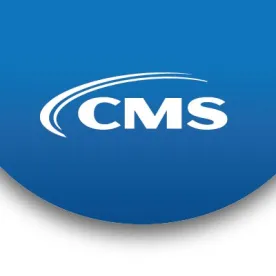As part of its 2022 Inpatient Prospective Payment System (IPPS) Proposed Rule for Acute Care Hospitals, the Centers for Medicare and Medicaid (CMS) is proposing an increase for Medicare fee-for-service payment rates to acute care hospitals by 2.8 percent, or $3.4 billion in Fiscal Year (FY) 2022.[[1]]
Hospitals hoping to receive the payment increase must successfully participate in the Hospital Inpatient Quality Reporting Program and be meaningful electronic health record users.[[2]] This same proposal would also require hospitals to report vaccination rates among health care staff and repeal the mandate that hospitals disclose privately negotiated payer rates. CMS claims the repeal will reduce administrative burdens on hospitals by 64,000 hours and $4.3 million.[[3]]
The same proposal is also likely to provide for an increase, the first since 1996, to the number of medical residents that Medicare helps pay to train, a move that is supported by the American Hospital Association. Under the current regime, the Association of American Medical Colleges projects a shortage of between 54,000 and 139,000 physicians by 2033 due to retirements, burnout, and growth of the aging population that needs more medical care.[[4]] According to the National Institutes of Health, Medicare is the only payer with an explicit mechanism nationwide to support Graduate Medical Education (GME).[[5]] CMS’ national reach and proposed increase will work to combat the projected shortages.
The additional 1,000 GME residency positions are an implementation of Section 126 of the Consolidated Appropriations Act of 2021.[[6]] Under the scheme, up to 200 new GME resident training slots would be phased in each year beginning in 2023, resulting in an overall increase in CMS funding to the program by approximately $1.8 billion from FY 2023 through FY 2031.[[7]] Importantly, CMS is proposing to implement the Promoting Rural Hospital GME Funding Opportunity, which will offer a GME cap increase to rural training hospitals participating in an accredited rural training track.[[8]] The rural training track would be part of a wider effort to fund medical residency positions in hospitals in rural and underserved communities to address workforce shortages caused in no small part by the COVID-19 pandemic.[[9]]
The proposed rule is now open for public comment and is expected to be finalized and effective by Oct. 1, 2021.
[1] Susan Morse, Hospital payments increase 2.8% under CMS proposed rule, Healthcare Finance (April 28, 2021), https://www.healthcarefinancenews.com/news/hospital-payments-increase-28-under-cms-proposed-rule.
[2] Id.
[3] Id.
[4] Jessie Hellmann, Congress eyes adding more Medicare GME slots in infrastructure package, Modern Healthcare (April 23, 2021), https://www.modernhealthcare.com/politics-policy/congress-eyes-adding-more-medicare-gme-slots-infrastructure-package?utm_content=article1-headline.
[5] Nat’l Inst. of Health, History and Current Status of Medicare Graduate Medical Education Funding, https://www.ncbi.nlm.nih.gov/books/NBK233563/.
[6] CMS, Fiscal Year (FY) 2022 Medicare Hospital Inpatient Prospective Payment System (IPPS) and Long Term Care Hospital (LTCH) Rates Proposed Rule (CMS-1752-P), https://www.cms.gov/newsroom/fact-sheets/fiscal-year-fy-2022-medicare-hospital-inpatient-prospective-payment-system-ipps-and-long-term-care.
[7] Id.
[8] Id.
[9] Morse, supra note 1.




 />i
/>i

